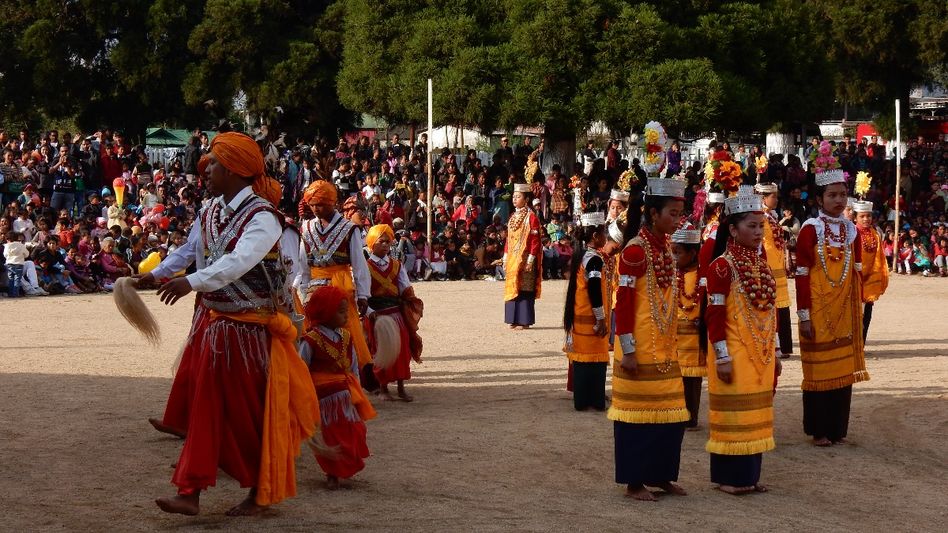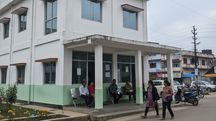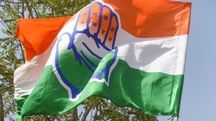Historic interfaith wedding in Meghalaya unites Unitarian and Niamtre faiths
Held on October 20 under the Khasi matrilineal system, the wedding was officiated by Rev Derrick P Pariat of the Unitarian Church and Pa Daloi Purmon Kynji, a Niamtre religious leader.

A wedding in Meghalaya’s West Jaintia Hills has drawn national attention for bringing together two distinct faith traditions — the Unitarian and the Niamtre — in what is believed to be the first ceremony jointly blessed by leaders of both religions.
Held on October 20 under the Khasi matrilineal system, the wedding was officiated by Rev Derrick P Pariat of the Unitarian Church and Pa Daloi Purmon Kynji, a Niamtre religious leader. Both offered blessings from their respective traditions, symbolising mutual respect and spiritual unity.
The groom’s father, Rev HH Mohrmen, a senior Unitarian minister from Jowai, described the occasion as “a historic moment that embodies the true spirit of freedom and coexistence.” Reflecting on the wider implications, he added, “At a time when interfaith marriages elsewhere in the country are often opposed or burdened by conversion pressures, this union reminds us that faith can unite instead of divide.”
Unitarianism in the Khasi Hills dates back to the late 19th century, when Hajom Kissor Singh founded a movement that rejected missionary orthodoxy and merged reason, moral living, and equality with Khasi-Jaintia traditions. The Niamtre faith, followed by the bride’s family, emphasises reverence for the Creator, ancestors, and nature, guided by the belief in Tip Briew, Tip Blei — “Know Man, Know God.”
The interfaith wedding resonated widely on social media. Heirtami Paswet wrote, “So heartwarming to see love triumph over trivial religious differences,” sharing that his own relationship had ended due to family opposition over religion. Deiwi Tariang Tongper, an elected member of the Voice of the People’s Party in the Jaintia Tribal Council, called the event “what our society badly needs,” adding, “Love is the ultimate solution. God bless them in their new beginnings.”
Though Meghalaya has a higher rate of intercaste marriages compared to the national average — 25 per cent versus 9.9 per cent — interfaith unions remain rare. Data from the National Family Health Survey (2005–2006) show inter-religious marriages in the state at 6.7 per cent, against India’s 2.1 per cent.
The ceremony’s message of harmony stood out as a quiet but powerful statement — that love, respect, and shared values can bridge faiths even in times of growing social and religious divides. (With inputs from PTI)
Copyright©2025 Living Media India Limited. For reprint rights: Syndications Today









